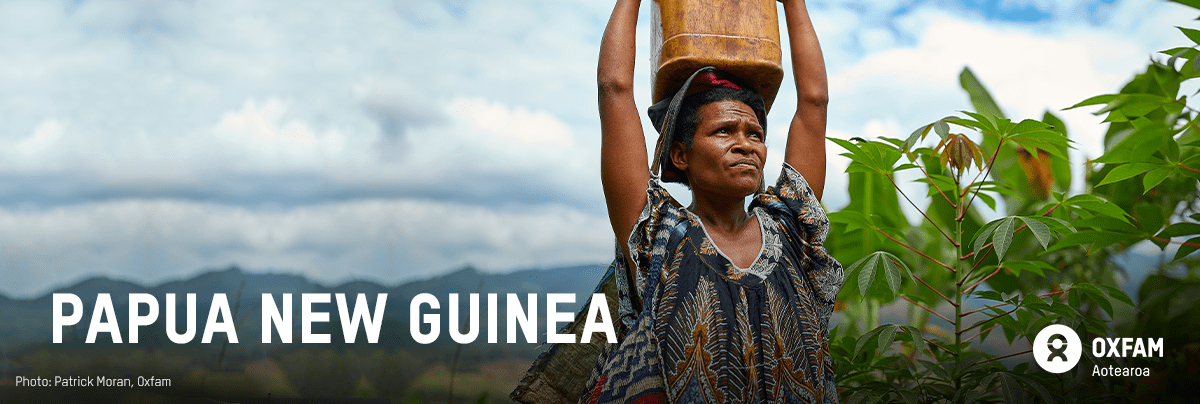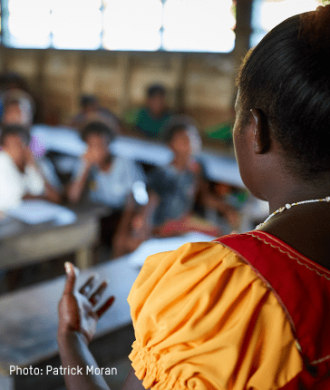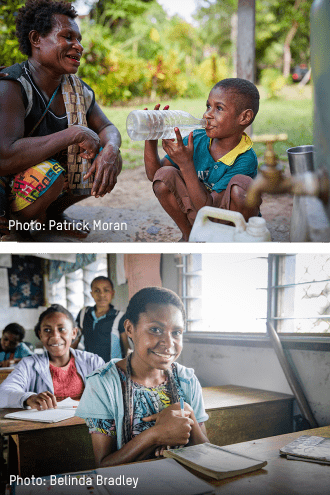We’d like you to meet one woman making a huge difference to the lives of other women – our water engineer in Papua New Guinea and Bougainville, Pauline Komolong.
[Read more…] about Meet Pauline Komolong, Oxfam’s water expert in Papua New Guinea
We’d like you to meet one woman making a huge difference to the lives of other women – our water engineer in Papua New Guinea and Bougainville, Pauline Komolong.
[Read more…] about Meet Pauline Komolong, Oxfam’s water expert in Papua New Guinea
Local people call Sarlota Itlay ‘Mama Sarlota’. The 41 year old widow lives with her four children in Musaima village, a mountainous district in the Baliem Valley of West Papua.
This report presents the results of a study conducted in the Hela region of the Southern Highlands Province of Papua New Guinea over a 16-month period (October 2007 – March 2009). The study had the broad aim of exploring perceptions of insecurity, looking at the scale, nature, triggers and impacts of interpersonal and tribal violence. The main purpose of the study was to generate information for advocacy and to inform the policies and programme development of Oxfam and its local partner in the region, Hela Community Care.
Download the 12-page Executive Summary (PDF 310KB)


Amongst the country’s towering mountains, deep valleys and tropical forests lie a multitude of communities all with their own languages, cultures and histories. Rural Papua New Guinea is home to 80% of the population, yet these families have seen few benefits from the country’s thriving gas and oil industry due to corruption across political, legal and state institutions.
These barriers combined with challenging physical geography and poor infrastructure, such as roads, have stunted economic development in these rural areas. This makes it hard for locals to sustainably engage in anything more than subsistence farming as often transporting their crops to the larger, lucrative markets in the cities is unaffordable. Unsurprisingly, income inequality in PNG is the highest in the Asia Pacific region. Growth-fuelled inflation is causing further imbalances, meaning basic items are often too expensive for rural farmers.
Statistics from the UNDP Human Development Report and The World Factbook:


About half of Papua New Guinea’s population live in the Highlands (approximately 3 million people) but many of these people have limited or no access to clean water or sanitation services.
By building water tanks, latrines, showers and by promoting good hygiene, we’re helping over 32,000 people stay healthy. In addition, installing private toilets in schools means that teenage girls can continue their education, rather than staying home on days they have their periods.
Oxfam’s HARVEST project worked with local partners to improve the income and lives of over 2,000 families so they could send their kids to school, access decent healthcare and reliably put nutritious food on the table.
This programme helped farming families boost the quality and quantity of their vegetable yields by improving planting and pest-control techniques. This means they can shift from subsistence to market-oriented farming.
With more knowledge, these farmers can then access larger, more profitable markets. We also partnered with two local honey businesses to train and support beekeepers. This doubled the incomes of many families.
As their incomes grew, we helped women and men develop financial management skills to jointly plan, budget, and save for their financial goals. To improve the security of their savings, we also linked them with community-savings providers.






